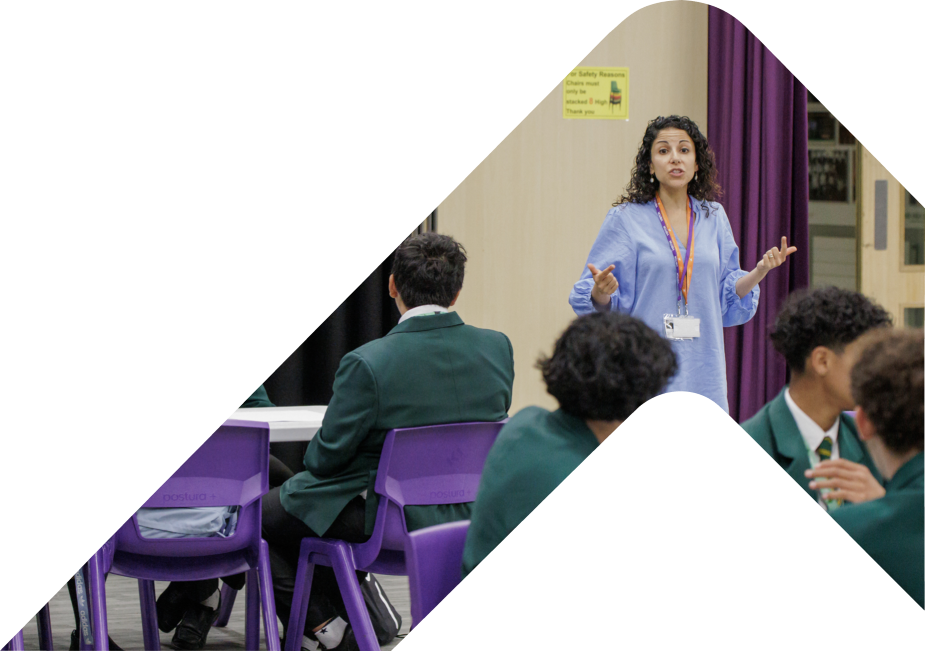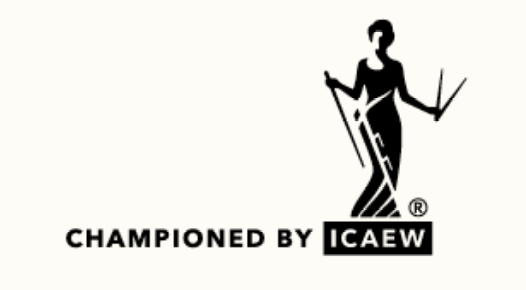How Rise helps secondary school teachers stay on top

Tailored resources and dynamic workshops help secondary school teachers equip students with crucial skills for successful careers.
Ask teachers what motivates them most and they’ll say teaching students the essential skills to prepare them for life. Supporting students’ career development and employability is another strong motivator, a survey from the social enterprise Skills Builder Partnership reveals.
But teachers also say they are not measured on preparing young people for the world of work. This disparity between what teachers feel they are assessed on and what motivates them leads to dissatisfaction. And it’s among several barriers they face when it comes to teaching students how to prepare for the world of work.
For students living in deprived areas, the hurdles to entering the world of work are even higher. For example, more than half of children growing up in the most deprived households hold qualifications up to GCSE level, compared to almost half of those from the richest households graduating from university, figures from the Institute for Fiscal Studies show.
The cycle of poverty keeps growing. The income gap between affluent and disadvantaged young adults is 2.5 times larger in areas with low social mobility, and up to 33% of the gap is attributed to family background and local market factors beyond educational achievement, according to a report by the Social Mobility Commission.
The Rise initiative offers students aged between 11 and 16 from low socio-economic backgrounds the opportunity to gain skills necessary for the workplace; Rise provides digital classroom resources for teachers and offers employability workshops at eligible schools in deprived areas.
Rise also partners with companies to deliver workshops, offering students real insight into working life and different professions. Since its inception, close to 800 workshops have been delivered and nearly 47,000 students have been reached.
Nearly one hundred per cent of teachers who have engaged with the programme rate the workshops as ‘excellent’. Here’s how Rise helps teachers stay on top.
1. Classroom resources created by teachers for teachers
The Rise initiative includes free classroom content for Key Stage 3, Key Stage 4 and N5 students developed by the Skills Builder Partnership and Causeway Education, a charity which supports young people facing barriers to higher education, apprenticeships and careers.
“The Rise resources were adapted following teacher feedback so they can be better used,” says Dr Sam Holmes, CEO of Causeway Education and former secondary school teacher. “They are easy to use and accessible. Teachers are assured they are high quality, and they can pick them up and use them without too much prep.”
The resources also enable teachers to clearly demonstrate to students the application of certain skills in the workplace. Lessons are designed to feel relevant and actionable for students, all while complementing their knowledge of the National Curriculum.
“By devising creative project-based opportunities and practical applications that require the use of essential skills like teamwork, problem solving and speaking and listening – alongside the knowledge in the curriculum – learners are much better able to understand how what they are learning would be useful in the future,” says Evelyn Haywood, Director of Education at the Skills Builder Partnership, and former secondary school Science Teacher.
2. It delivers National Curriculum requirements
The resources tie into core subjects in the National Curriculum, including the Sciences, Maths and English, linking skills like adaptability and creativity via the activities, in which students step into different professional roles, including an accountant, logistics manager and sustainability officer.
“This means that teachers can slot it into what they are already doing,” Haywood adds. “The resources very clearly tell teachers what learning outcome is being delivered in the National Curriculum.”
“Directly next to that they tell teachers the skill step that is being practiced. So they can very easily see that they are teaching a part of the science curriculum and building problem solving skills,” she adds. “And they link to real jobs.”
This helps teachers short on time. “The amount of content we have to deliver in each subject is significant,” says Rosemary Beavers, Transition and Enrichment Lead and Maths Teacher at Beckfoot Thornton school in Bradford. “These resources help us to identify real-world activities that can slot neatly into work we are already doing on topics.”
Often employability resources for teachers sit in isolation as part of career events and form time, rather than being embedded into a subject. “The resources help address capacity and workload challenges by providing a teacher with all the resources they need to deliver lessons, for example student worksheet, teacher answer sheet and the ability to adapt either of these to match the learner needs,” Holmes adds.
3. Rise offers dynamic workshops
Rise workshops are delivered on school premises by a facilitator from the social mobility charity The Talent Foundry and with volunteers from different professions and organisations. “Teachers are perhaps not as networked as other industries,” says Jenni Anderson, CEO of The Talent Foundry.
“And we see that play out in young people from under-served communities. If they don’t have a networked community around them that do different things, they won’t have relatable role models who can show them that there’s different things for them to do when they leave school,” she adds.
Workshop activities have purposes and timelines and are specific – just as jobs are. “The tasks have been really well thought-out and the fact that the volunteers come from the real world is important,” adds Beavers, who organises Rise workshops for pupils at Beckfoot Thornton school. She allows students to sit in groups with their friends, unlike in class where the seating plan is arranged. “I want them to be in groups and be able to talk comfortably.”
External workshop participants impress senior leadership teams and pupils alike. “Kids see it as: ‘These guys who are in the real world are willing to give up their time and come and sit with me and talk to me about an idea I’ve got. How cool is that? Maybe I am worthwhile’,” Beavers says.
The design and flow of the tasks in the workshops help students think about their skills and analyse where they fit in a group of other students. “In the world of work and when people go to interviews they need to know their skillsets, and what they need to improve on,” Beavers adds.
4. It gives students skills for life
The fully facilitated model means workshops can be delivered in classrooms and can bring in curriculum subjects. “They encourage students to think about how the subjects they learn at school relate to careers, bringing practical application of their learning and skills and seeing them through a different lens – of the workplace,” Anderson says.
“For example, presentations at school are often about demonstrating learning about a subject. Presentations at work are often about persuading someone else of your way of thinking. The workshops are about learning those unwritten rules of work,” she adds.
The Rise initiative also provides explicit focus on self-reflection, encouraging learners to make a judgement on what they have learned. “That pedagogical loop is really important: introduce something, have a chance to apply it, then reflect on it afterwards, and then to do that in lots of different settings,” Haywood says.
“Learning is never totally linear. People don’t just work through things sequentially. So the resources and workshops have a logical sequence to building skills sequentially over a lifetime,” she adds.
The initiative gives students agency and a readiness for their career. “It sets a vision for them of what good careers practice looks like,” says Holmes. “Because the activities are fairly bite-sized you’re not magically injecting complex skills into young people, you’re giving them a taste of them and flagging up why they are important.”
5. It improves social mobility
The Rise initiative is an accessible way for teachers to think about embedding careers at school. “Senior leaders need to think about how this can be done strategically, and how the career lens is embedded within mainstream lessons on an ongoing basis,” Holmes says.
Preparing students for the world of work is crucial for them, employers and society. “There is a combination of many factors – it is difficult for young people to get work experience to be ready for work, and the availability of entry level jobs that help them build the skills to be work-ready isn’t always there,” Anderson says.
Rise helps level the playing field, exposing students from less advantaged backgrounds to experiences relevant to the workplace at an early age, and building their skills to pursue job opportunities in the future. “Learners from more advantaged backgrounds are more likely to get these kinds of opportunities at home, through extra-curricular activities,” Haywood says. “Learners from less advantaged backgrounds leave schools with lower levels of essential, transferable skills.”
At Beckfoot Thornton school, the majority of students haven’t got parents working in higher paid and professional level jobs. “It’s important that our students have high aspirations and expectations for their futures, seeing visitors in high level roles helps show them that these opportunities are out there and that they can aspire to work in such roles,” Beavers says.
“It makes all the difference when we have workshops like Rise because students realise they have a lot to offer and can develop their skills for a career they hadn’t thought about before.”
By volunteering with Rise, professionals across the country are helping to move the dial, opening students’ eyes to the variety of careers available, and helping them to build the skills necessary to pursue them. Moreover, Rise resources empower teachers to deliver career-themed content independently and in a way that feels authentic and relatable to students, showcasing real-life examples of the opportunities on offer.
If you’d like to see the range of classroom resources on offer, please explore them here. To book a Rise workshop, please complete our booking form.
The best thing was engaging in conversation with professionals and the different skill-building tasks.
Emmanuel
Student, London

Sign Up Form
"*" indicates required fields
